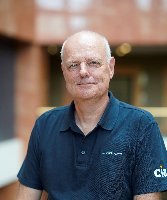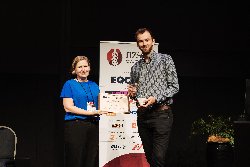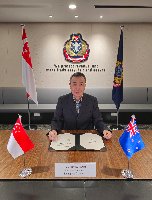Philips calls for action to end light poverty
Philips calls for action to end light poverty
Auckland, 29 January, 2015 – Millions of people are needlessly suffering because approximately a fifth of the world’s population does not have access to electric light, Royal Philips (NYSE: PHG, AEX: PHIA), the global leader in lighting, warns today. More than 1.3 billion people are trapped in light poverty as they don’t have access to electricity. Most of those affected resort to kerosene lamps and candles to light their homes and businesses. But these primitive light sources claim the lives of 1.5 million people every year through respiratory illnesses and fires – the same number killed annually by HIV-related diseases.
The warning comes following the UN’s launch of its International Year of Light (IYOL) on 19 January. The global initiative will see the United Nations Educational, Scientific and Cultural Organization (UNESCO) bring together a large consortium of stakeholders. Included are scientific societies and unions, educational institutions, technology platforms, non-profit organizations and private sector partners including Philips as patron sponsor of IYOL. Throughout 2015, they will highlight the impact of light on social and economic development.
Light poverty affects huge swathes of Africa, Asia and South America with as few as 1.5% of people in South Sudan provided access to electric light. In many developing countries, electrical grids are unviable due to the geographic and financial constraints of linking hundreds of remote communities. However, solar LED technology can provide light at a fraction of the cost of running kerosene lamps, without any of the health, safety or environmental dangers – or the need for major investment in infrastructure.
“Human suffering on this scale is unacceptable in the 21st century,” said Eric Rondolat, CEO of Philips Lighting. “Solar-powered LED lighting can transform rural communities and save millions of lives. What’s more, it does not have to be invented – it already exists and is proven. I call on politicians to stand together and commit to ending light poverty by 2030.
“The economic case for taking action is irresistible – light is essential for human prosperity. Lifting 1.3 billion people out of light poverty would not only end this stranglehold on economic, social and cultural development but would also bring a boost to global GDP.”
A single solar-powered LED lantern uses zero energy and can fill a room with clean, electric light for an approximate one-off cost of US $10-20, compared to the US $50 approximate annual fuel bill of running a kerosene lamp. On a larger scale, energy efficient LED luminaires and solar panels can be combined to produce sustainable lighting in public places and bring communities to life outside of daylight hours. These Community Light Centers (CLCs) allow healthcare services and businesses to operate after sunset as well as encouraging sports and other social activities. Philips is in the process of installing 100 CLCs across 12 countries in Africa, where some 500 million people do not have access to light.
Click here to see how light poverty affects one in five people globally
Discover how a Philips Gift of Light project has helped communities in the Democratic Republic of the Congo http://youtu.be/44fKNyIu0hQ
Watch this video to learn why light is fundamental to life http://youtu.be/KEIQgk9Yxng
Royal
Philips
Royal Philips (NYSE: PHG, AEX: PHIA) is
a diversified health and well-being company, focused on
improving people’s lives through meaningful innovation in
the areas of Healthcare, Consumer Lifestyle and Lighting.
Headquartered in the Netherlands, Philips posted 2013 sales
of EUR 23.3 billion and employs approximately 115,000
employees with sales and services in more than 100
countries. The company is a leader in cardiac care, acute
care and home healthcare, energy efficient lighting
solutions and new lighting applications, as well as male
shaving and grooming and oral healthcare. News from Philips
is located at www.philips.com/newscenter.
ENDS


 John Mazenier: Gaffer Tape And Glue Delivering New Zealand’s Mission Critical Services
John Mazenier: Gaffer Tape And Glue Delivering New Zealand’s Mission Critical Services Earthquake Commission: Ivan Skinner Award Winner Inspired By Real-life Earthquake Experience
Earthquake Commission: Ivan Skinner Award Winner Inspired By Real-life Earthquake Experience Reserve Bank: Consultation Opens On A Digital Currency For New Zealand
Reserve Bank: Consultation Opens On A Digital Currency For New Zealand NIWA: Ship Anchors May Cause Extensive And Long-lasting Damage To The Seafloor, According To New Research
NIWA: Ship Anchors May Cause Extensive And Long-lasting Damage To The Seafloor, According To New Research New Zealand Customs Service: A Step Forward For Simpler Trade Between New Zealand And Singapore
New Zealand Customs Service: A Step Forward For Simpler Trade Between New Zealand And Singapore Horizon Research: 68% Say Make Banks Offer Fraud Protection
Horizon Research: 68% Say Make Banks Offer Fraud Protection



